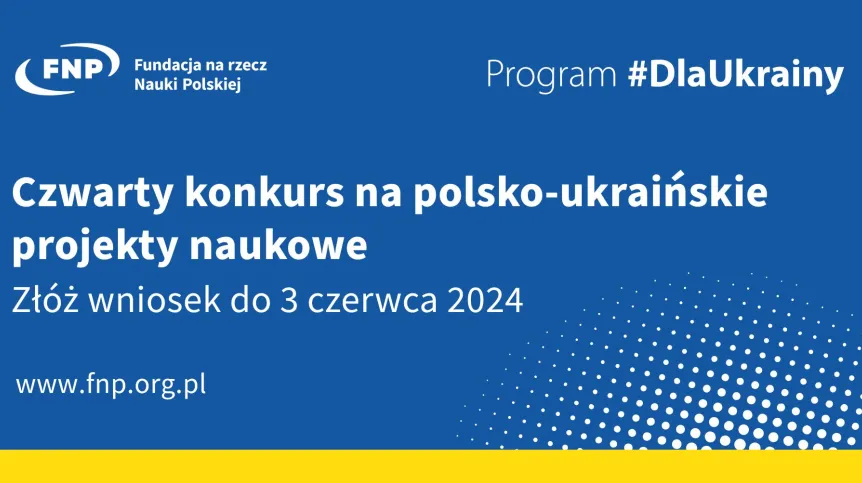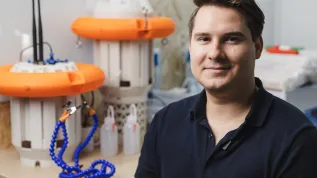
Scientists from Ukraine are invited to establish cooperation with Polish researchers to undertake joint research in humanities and social sciences. The deadline for applications is June 3, 2024. The funds have been made available by the Foundation for Polish Science (FNP) as part of the fourth call in the FOR UKRAINE Programme.
The fourth edition of the FOR UKRAINE competition is open to researchers employed in a Ukrainian research institution and residing in Ukraine. Together with a partner from Poland, they can submit a project to the competition. Researchers submitting the project, representing both the Ukrainian and Polish sides, must hold doctoral degrees obtained no earlier than 12 years before submitting the application.
The topics of submitted projects should include issues related to the development of civil society, democracy, European integration, or security. The projects must deal with matters of importance to both countries. The programme offers an annual grant of PLN 268,800 and includes funds to cover both remuneration and research costs. In the current call, the Foundation for Polish Science plans to select up to three projects for financing. The applications will be evaluated by an international panel of experts.
'The situation in Ukraine is changing. The conflict is intensifying. Scientists living in Ukraine are struggling with huge problems. That is why we have decided to support those researchers who are in Ukraine and work there in the fourth call in FOR UKRAINE Programme,’ says Dr. Sofia Azovtseva, the FOR UKRAINE Programme coordinator at the Foundation for Polish Science.
The Foundation for Polish Science launched the FOR UKRAINE Programme in March 2022, shortly after Russian aggression against Ukraine.
'We immediately decided to support our neighbours the best way we can, which is by funding scientific research. We wanted to help Ukrainian researchers to continue their scientific work interrupted or severely hampered by warfare. The interest in our programme has exceeded our wildest expectations, proving that this initiative was and is much needed,’ says Professor Maciej Żylicz, president of FNP.
According to data published on the Science at Risk platform, as a result of a full-scale Russian invasion, as many as 15 percent of Ukrainian research infrastructure was destroyed. Seventy-three percent of researchers who remained in Ukraine declare that they cannot conduct research at the same level as before the start of the full-scale conflict.
More information about the programme and detailed programme regulations are available at: www.fnp.org.pl
PAP - Science in Poland, Urszula Kaczorowska
uka/ zan/
tr. RL













